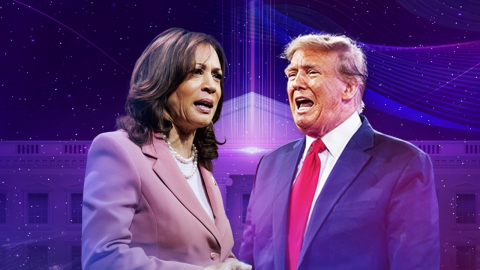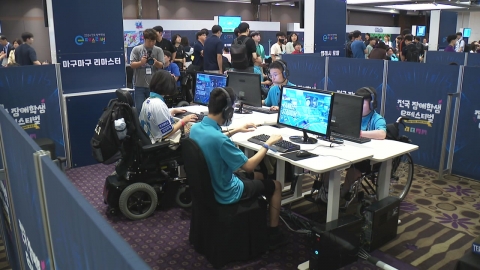Although South Korea and the U.S. have concluded the defense cost-sharing negotiations unusually quickly, the U.S. presidential election, which is about a month away, is expected to be the biggest variable.
If Trump becomes the president of the United States, the possibility of renegotiation is also being discussed.
Reporter Kim Dae-gyeom's report.
[Reporter]
South Korea and the U.S. have ended defense negotiations that have lasted for about five months.
The agreement was reached unusually quickly a year before the end of the agreement.
The government set a cap on annual contribution growth at 5% and cited the biggest achievement as returning the annual growth rate index to the consumer price index standard from the current defense expenditure growth rate.
In addition, it has also increased efficiency and transparency by eliminating some provisions so that costs cannot be used for overseas U.S. military-related purposes.
[Lee Jae-woong / Ministry of Foreign Affairs Spokesperson: It reflects the two countries' commitment to ensuring stable stationing conditions for U.S. troops in South Korea and strengthening the ROK-U.S. joint defense posture....]
However, the biggest variable is the results of the U.S. presidential election, which will be held in about a month.
If Vice President Harris is elected, it is likely that the defense negotiations will remain the same, but if Trump returns to power, the situation could change as much as possible.
As it is the result of the Biden administration's negotiations, it is possible to demand renegotiation by taking the content as an issue.
[Park Won-gon / Professor of North Korean Studies at Ewha Womans University] Trump, of course, sees the alliance as cost-benefit, so he is likely to demand additional costs from South Korea in some form. That's one of the reasons why we rushed this 12th agreement.]
As in the first administration, it may charge for the deployment of U.S. strategic assets such as the Korea-U.S. joint training and pressure additional defense costs.
Recent remarks by former U.S. national security adviser O'Brien, a close Trump ally, also support the possibility.
[Robert O'Brien / Former U.S. National Security Adviser (last month): Allies need to contribute more. Korea currently spends 2.5% of its GDP on defense, but it needs to be increased to 3% to 3.5%, just like the United States. That way, our allies can share their luggage.]
The government is also preparing for all possibilities, but if Trump succeeds in regaining power, controversy over defense costs is expected to be inevitable for some time.
I'm YTN's Kim Daegyeom.
Edit
video: Ma Young-hoo
※ 'Your report becomes news'
[Kakao Talk] YTN Search and Add Channel
[Phone] 02-398-8585
[Mail] social@ytn.co.kr
[Copyright holder (c) YTN Unauthorized reproduction, redistribution and use of AI data prohibited]
Politics
View the full list of articles- Civil service society that recommends 'childcare leave'...What's the rest of the assignment?
- What's the breakthrough for Lee Jae-myung ahead of "Nov of Destiny"?
- Yoon-Han avoided a "head-on collision," but..."Attack owner." War clouds are rising.
- Kim Young-ho said, "I will follow the example of Germany and move forward with a unified Korea."







